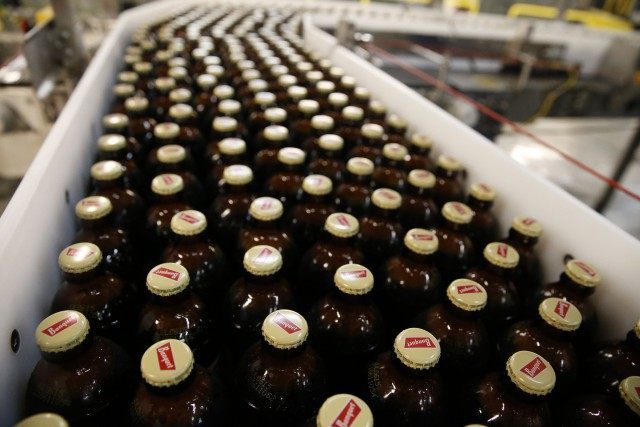The Chinese government in the Western Muslim province of Xinjiang have issued an ordinance forcing local shops to sell alcohol and cigarettes, which are forbidden by the religion, or have authorities shut down their shops. Locals say the ordinance is meant to “weaken” religion in the area, and in the latest in a series of laws intended to eliminate Islam from China.
Radio Free Asia published a copy of the new legislation, which forces shopkeepers in the area to sell products forbidden by Islam for the “convenience” of the Chinese people. RFA notes that up to 70 percent of the population of Aktash village, the affected part of Xinjiang, do not use alcohol or cigarettes because of their faith. The ordinance does not only require that the products be present in stores, but shopkeepers must “place five different brands of alcohol and cigarettes in their shops before [May 1, 2015],” and use “eye-catching displays” to sell the products. “Anybody who neglects this notice and fails to act will see their shops sealed off, their business suspended, and legal action pursued against them.”
The reaction to the ordinance from the public is yet uncertain, though locals report that shops are indeed abiding by the new law. In Xining city, east of Xinjiang but also with a high Muslim population, a mob of angry Muslims attacked and destroyed a cake shop last week after discovering a delivery truck had pork products in it.
Concerns about these sorts of incidents had kept shopkeepers in Aktash from selling cigarettes and alcohol, says Aktash village party committee secretary Adil Sulayman to RFA. “We have a campaign to weaken religion here and this is part of that campaign,” he told the news organization candidly. He explained that “since 2012, people have stopped selling alcohol and cigarettes through their businesses. Even those who benefitted financially from the practice have given it up because they fear public scorn.” The ordinance, he added, was to protect the freedom of business owners to sell what they wish.
Incidents like the attack on the cake shop in Xining have triggered concern among Chinese officials that Muslims in the west are forcing Sharia law upon residents there, and not the often equally strict laws of the Chinese Communist Party. This has made the Chinese Communist Party an unlikely supporter of free trade in areas where Sharia would prevent the sale of certain products, such as alcohol, cigarettes, or pork products. Markets are not the only battlefield in this saga, however, as Xinjiang authorities have moved steadily to ban almost every public Muslim activity.
Urumqi, the capital of Xinjiang, passed a ban on wearing burqas publicly in January, citing safety reasons. The previous August, the city banned “Islamic garb,” both male and female, and long beards on public transportation. At least one couple has been sentenced to jail time for flagrantly violating the city’s new dress code. James Leibold, an expert on China’s ethnic policies at Melbourne’s La Trobe University, told the Washington Post that the forced alcohol sales were just the latest in Chinese policies “flailing around in the dark” trying to combat radical Islam.
Xinjiang officials also passed a ban on religions generally, despite the de facto ban on religion that exists in China due to its being a Marxist state. Chinese columnists in state media have previously written that militant state atheism is the key to defeating radical Islam, attacking the United States for being too “Christian” to properly address the threat of religion. The claims mask that the Chinese government, perhaps to appease its increasingly unsettled Muslim population, is participating in Islam in a way the United States never has: it paid for 14,000 Muslim Chinese citizens to make the hajj to Mecca in 2014.

COMMENTS
Please let us know if you're having issues with commenting.